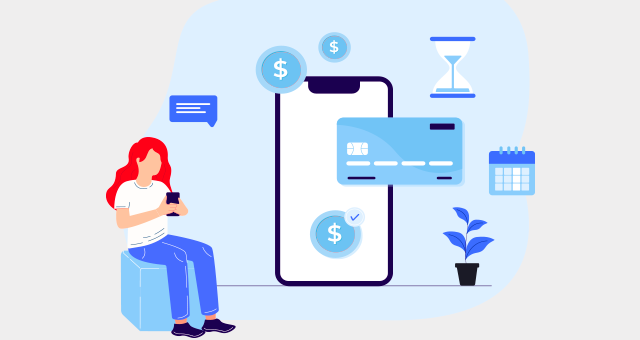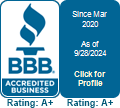
The Pros and Cons of Autopaying Your Bills: Making Informed Financial Decisions
In the era of digital advancements, managing finances has become simpler than ever. One of the features that has grown in popularity is auto-paying bills. It allows you to set up automatic payments for recurring expenses, such as utility bills, mortgages, and subscriptions. While the convenience is undeniable, the question remains: Should you auto-pay your bills?
Let us explore the pros and cons of automating your bill payments to help you make an informed decision.
PROS
1. Practicality
Convenience is, of course, the main benefit of setting up your bills for automatic payment. You will not have to bother about remembering to check the calendar for due dates or signing in to enter your payment details for every bill. It can be surprisingly time-consuming, particularly if you have many payments coming out together.
It also eliminates the need to remember when and how much needs to be paid. Further, knowing the precise day the payment is due every week, month, or year brings some relief.
2. Easier to Attain Your Goals
Of course, the most evident benefit of auto-pay is the ease of bill payment. Most importantly, though, is that auto-pay makes it simpler for you to accomplish self-imposed objectives, such as paying yourself first.
Use the credit card’s auto-pay feature to set the amount and frequency of payments if your goal is to pay off your debt. When you make regular payments towards the total, you will be surprised at how quickly the balance amount will reduce.
The same holds for your savings account. Set up a regular deposit into your savings account each paycheck with bill pay. You can quickly reach your savings objectives if you do this.
3. Credit Score Maintenance
Your FICO credit score is primarily influenced, by your payment history. It accounts for 35% of the score. So, setting up automatic bill payments can help guarantee that you do not overlook payments that could lower your score and improve your creditworthiness. You are also more likely to get better terms —like lower interest rates—from lenders and credit card companies if you have a higher score.
4. Timely Payments
Autopay ensures that your bills are paid on time every month. It can be particularly beneficial for individuals with busy schedules who may forget to make manual payments. Also, if you travel frequently, it is a great way to ensure that your bills are paid on time, even if you are not home.
5. Avoid Penalties for Late Payment
You may have to pay a late fee penalty of $25 or more if your payment is overdue for even a day. It is also possible for your interest rate to increase. It could result in annual costs of hundreds of dollars. Your payments will always be on time with autopay. Therefore, you will not have to pay late fees and improve your overall financial health.
6. Save Money.
In addition to the cost savings associated with electronic payments (no need to purchase stamps, easier late payment avoidance, and subsequent penalty fees), there are additional benefits that come with using this mode of payment. People who use auto-pay for recurring bills can receive a small interest rate discount from some lenders, such as student loan providers. Several phone providers additionally provide benefits, such as additional data or bill credits, for enabling auto-pay.
7. Sustainability
Automating your payments could be a small way to show your support for the environment. You will use less paper because you will switch to paperless billing, writing fewer checks, and purchasing fewer stamps.
Also, you receive fewer paper documents and bills in the mail because most of the “paper trail” is electronic. It will help cut emissions and save tonnes of trees.
CONS
1. Problem with Your Cash Flow
Automated payment plans might not be the right choice if you are living paycheck to paycheck and have little backup funds at the end of the month.
If there are unexpected changes in your financial situation, like a job loss, you may find it challenging to adjust payment amounts or schedules promptly. One poorly timed debit could lead to several missed payments, bounced checks, an overdrawn account, and all the associated penalty fees.
2. Potential for Billing Errors
It is simple to become complacent about the money leaving your account when you have automatic bill payments set up. It is possible that your biller accidentally charged you twice or withdrew the incorrect amount. It might not even be able to take out any money at all. Also, companies occasionally keep taking money even after you have canceled services. You should review your bills frequently to ensure you catch any discrepancies and address them promptly.
3. Superfluous Expenditure
It is easy to set up automatic payments for subscription services, fitness centers, meal kits, streaming services, and other luxuries. However, what happens if you stop utilizing these services or find that you are not receiving value for your money? For example, let’s say you decided to sign up for a month-long, free trial of Amazon Prime Service. You might receive an unpleasant surprise if you neglect to cancel a $139 annual charge. Thus, you risk emptying your account of money unnecessarily if you lose track of what you are paying for each month.
4. Grow overly accustomed to paying the minimum.
You might find it hard to reduce those balances if you auto-pay only the minimum amount owed on high-interest debt (yes, some lenders only let you auto-pay minimum amounts).To avoid paying more interest over time, you should put more towards private student loans or high-interest credit cards, for example, if you can afford to do so.
You might find it hard to make sporadic, one-time, large payments to your account by enrolling in auto-pay, such as increasing your car payment if you receive a windfall.
Concluding Remarks
It is evident from weighing the benefits and drawbacks of automating bill payments that you will save a tonne of time and annoyance every month. You will also benefit from being able to pay your bills on time and raise your credit score. However, there are some potential disadvantages, such as the risk of incurring overdraft fees, billing errors, and losing track of what you are paying for.
Therefore, to guarantee that autopay functions as a beneficial instrument rather than a possible cause of financial strain, it is imperative to maintain an equilibrium between automation and proactive money management.


